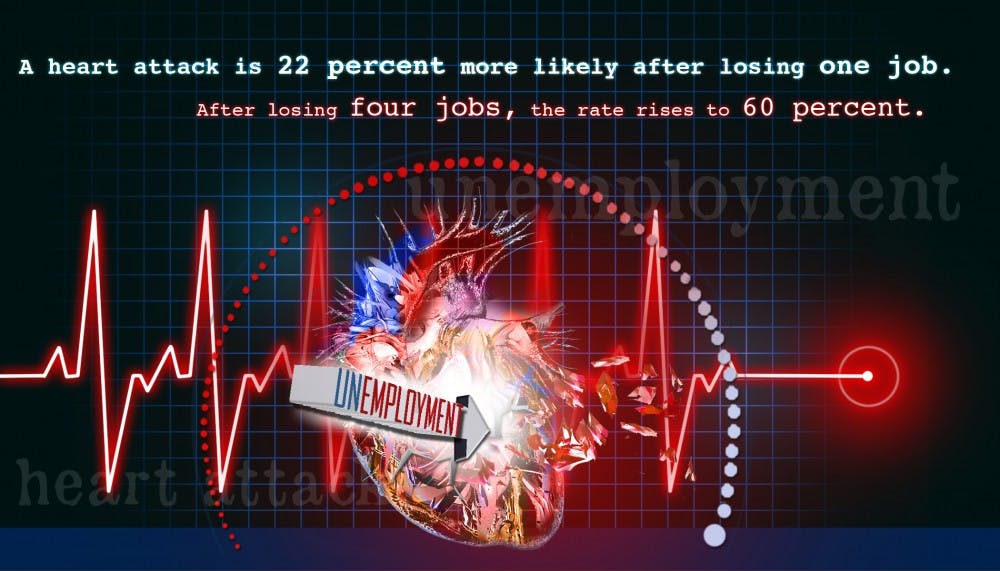Unemployment may impact more than just the wallet or the pocketbook—it could actually kill you.
A study conducted by researchers from Duke found a link between prolonged periods of unemployment and an increased risk of suffering a heart attack. Earlier research had indicated that unemployment was related to poor health, but this study focused specifically on unemployment’s relationship with heart attacks.
The study, published in the Archives of Internal Medicine last month, also found that the increased risk of a heart attack remained even after a person became employed, said sociology professor Linda George, an author of the study. The increased risk can begin even after period of unemployment early in a career. “Even if you are employed, if you have a history of unemployment, you are at an increased risk of a heart attack,” George said.
Researchers collected data from the Health and Retirement Study, a continuous study of Americans over the age of 50 sponsored by the National Institute on Aging and the Institute for Social Research at the University of Michigan. Over 13,400 patients aged 51 to 75 underwent a biennial follow up from 1992 to 2006. Among the subjects there were 1,061 heart attacks.
“If a person was unemployed, compared to someone who was employed, over the next two years they had an increased risk of developing a heart attack,” George said.
This study supported evidence found in earlier studies, which showed that unemployment was linked to poor health. The risk for a heart attack elevated after a year of unemployment, said Guangya Liu, coauthor and an empirical research analyst at the School of Law.
“In sociology we believe there are social factors affecting your health. Employment is one of those factors,” Liu said. “[The results] strengthen the relationship between employment status and health outcome.”
The report, however, was the first to examine the correlation specifically between employment and heart attacks. The study also found that a person who has lost his job four or more times during a career was approximately 60 percent more likely to suffer a heart attack than someone who had never lost a job, regardless of whether they were employed or not employed at the time.
“This research shows that [the risk] does not disappear but seems to imprint biologically [on the person],” George said.
Frank Sloan, J. Alexander McMahon professor of health policy and management and professor of economics, approached the results with caution after having seen other studies highlighting the relationship between unemployment and health.
“There are so many pathways that could underline that increased risk of heart attack,” he said. “I’m not sure if it’s justified to say there is scientific evidence [that links unemployment to heart attacks].”
The study does not conclude that young adults who are currently unemployed are at a risk of a heart attack at this time. However, an exposure to unemployment as a young adult will still impact future cardiac health, George said.
The changing nature of the labor market could test the link between unemployment and heart attacks, George added.
“The labor market has changed, and people will not have a stable career with only one or two employers as in the past,” she said. “It’s predicted people are more likely to have four or five employers and go through more periods of unemployment.”
If periods of unemployment becomes a normalized part of a person’s career, however, it may no longer be stressful to a person, she added.
Get The Chronicle straight to your inbox
Signup for our weekly newsletter. Cancel at any time.

